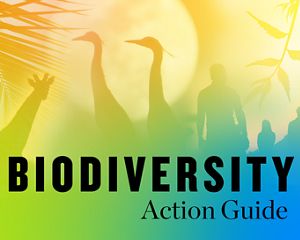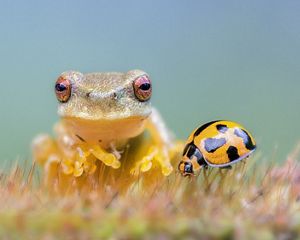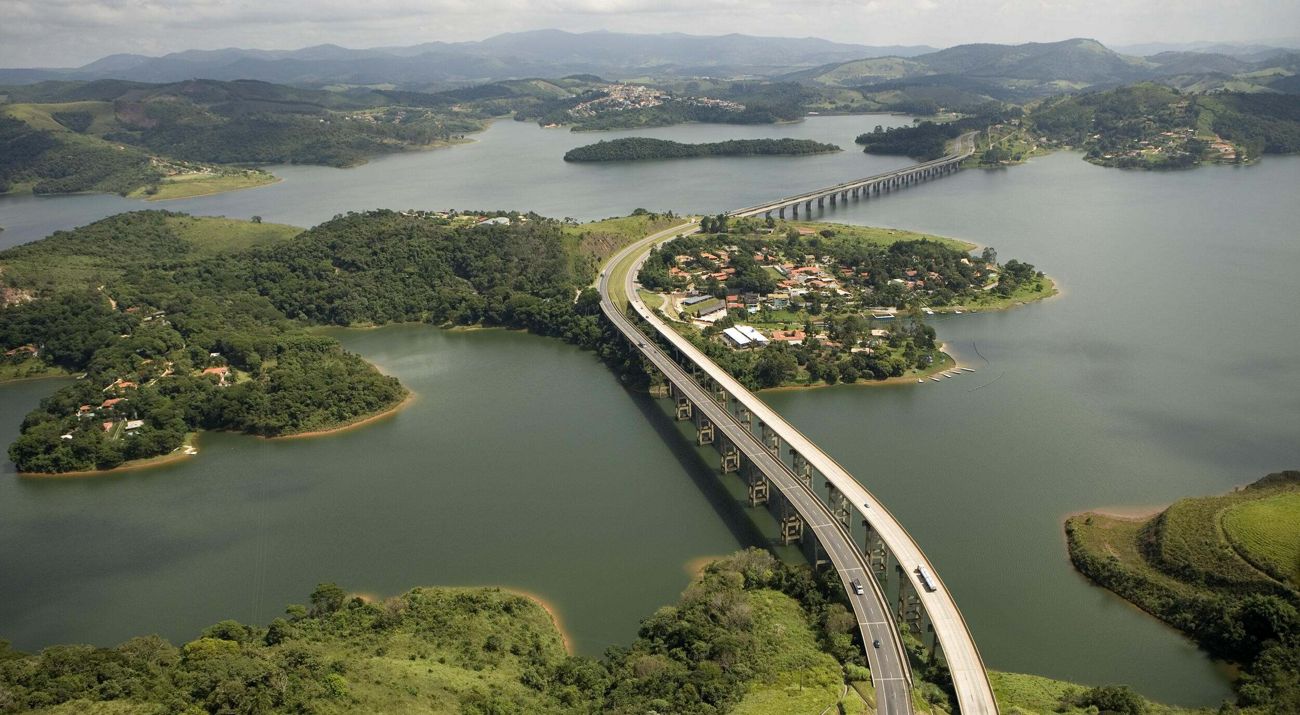
Our world thrives on the dynamic interplay of various economic sectors like agriculture, trade, energy and finance. These sectors are the backbone of our daily lives, driving progress and innovation. However, they also play a significant role in the challenges we face with nature’s degradation.
Transformative Change for a Better Tomorrow
To achieve the ambitious goals of the Global Biodiversity Framework (GBF), we need to rethink and reshape our economic models, policies and decision-making processes. This transformative change is essential to integrate biodiversity into every aspect of our lives.
What is Mainstreaming Biodiversity?
Mainstreaming biodiversity means embedding the value of nature and its benefits into policies and practices across all sectors. It’s about recognizing that our natural world is not just a backdrop but a vital component of our well-being and prosperity.
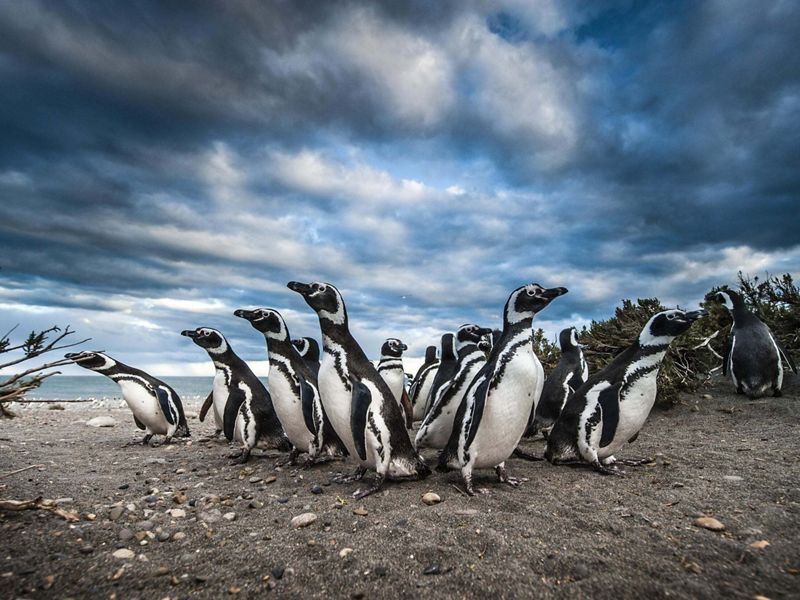
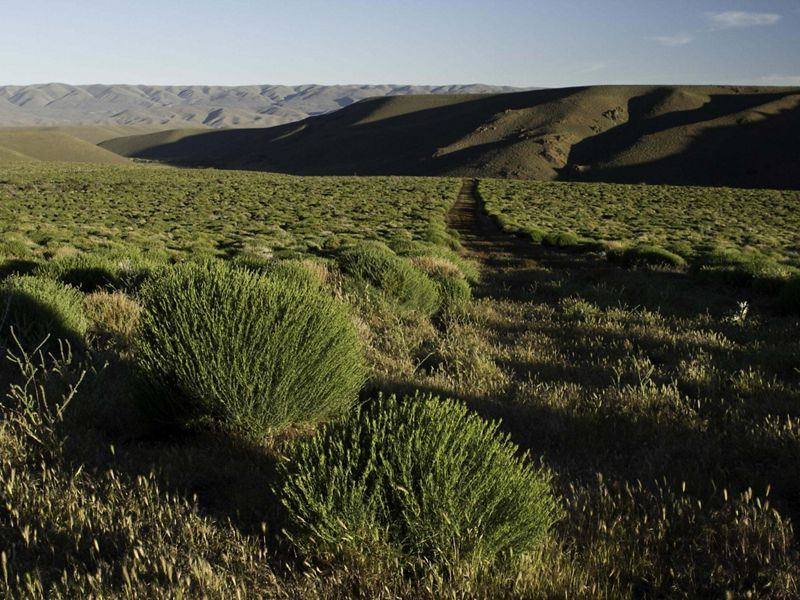
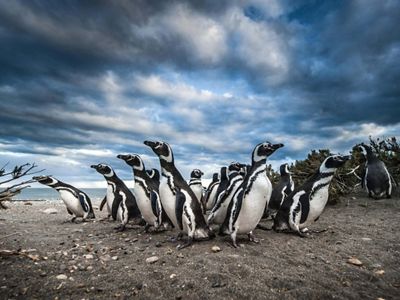
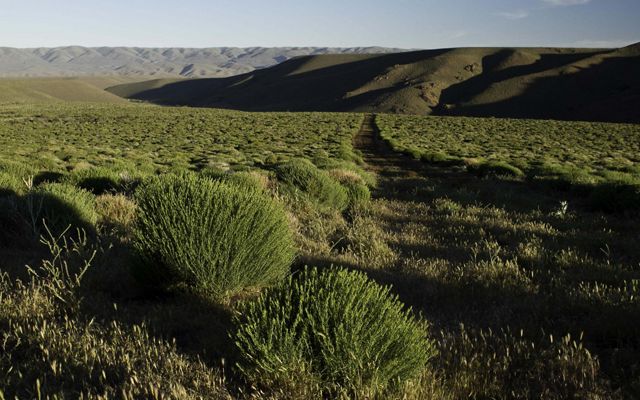
A Path to Positive Change
By transforming key sectors, we can halt the degradation of ecosystems, tackle pollution, combat climate change and uphold human rights. This holistic approach is crucial to reversing biodiversity loss by 2030. Organizations, like The Nature Conservancy (TNC), are advocating governments to implement strong policies, regulations and incentives to drive this transformation by signing on to the Mainstreaming Call to Action. To date, 56 organizations from around the world have signed on to this call to action. These signatories represent a cross sector of our global society: from youth networks, business, academia, to organizations specializing in food and agriculture, climate, circular economy, sustainable development, finance and trade.
Governments Leading the Way
Governments play a pivotal role in this journey. By implementing measures that mainstream biodiversity with a human-rights approach, they can ensure that key sectors contribute to the solution rather than the problem. This proactive stance will help safeguard our planet for future generations.
Learn More
Without decisive action across all sectors, we risk failing to halt and reverse biodiversity loss. But with collective effort and commitment, we can create a world where nature and humanity thrive together. Learn more about the Global Mainstreaming Biodiversity Call to Action and be part of the change.
-

Mobilize Key Sectors for Biodiversity: A Call to Action
Download the Global Mainstreaming Biodiversity Call to Action for COP16. View the CTA
-
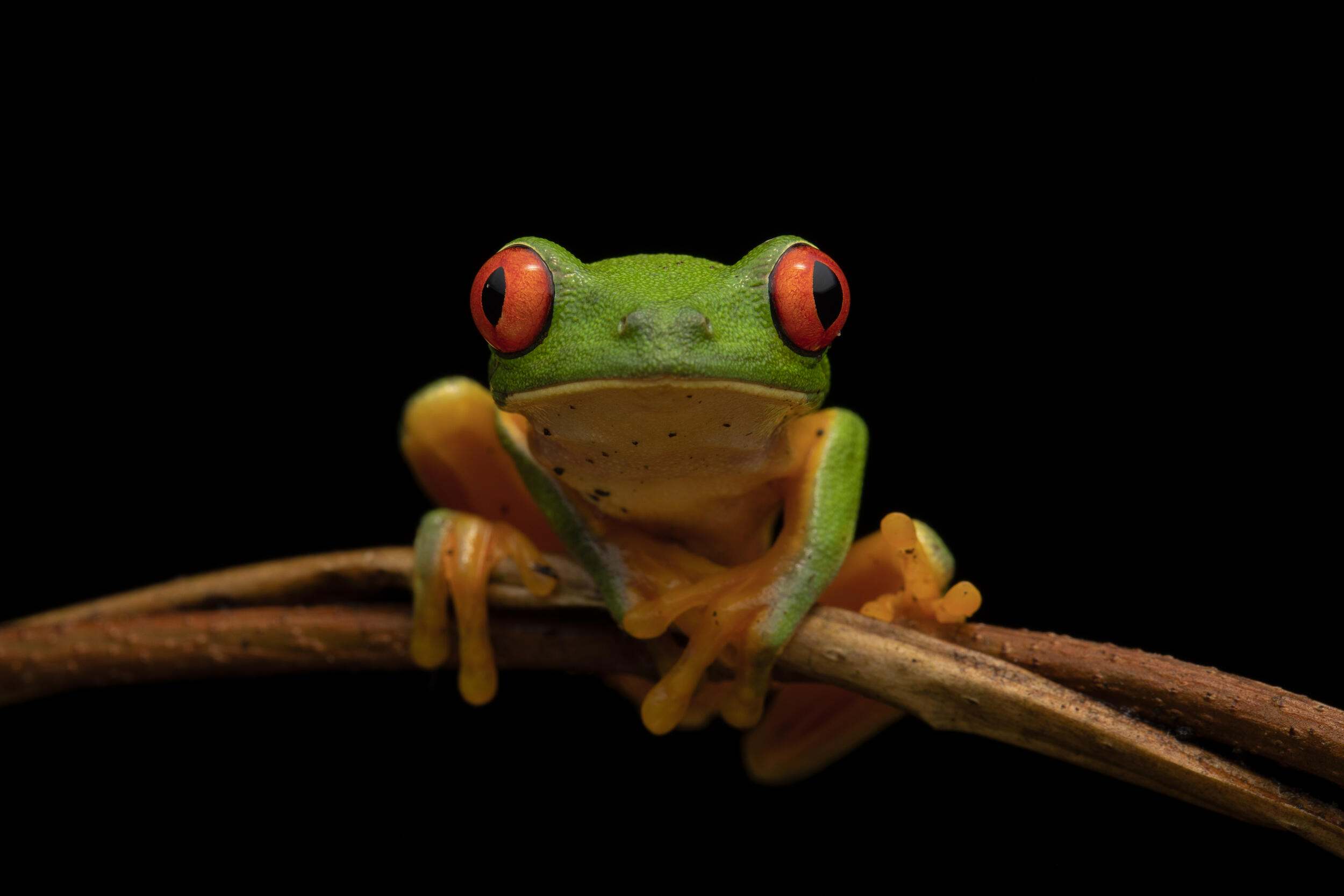
COP16: Your Guide to the 2024 UN Biodiversity Conference
The race to protect the planet's biodiversity will be front and center this October when representatives from countries around the world gather in Cali, Colombia, for the United Nation's Biodiversity Conference, referred to as COP16. See the Guide to COP16
-
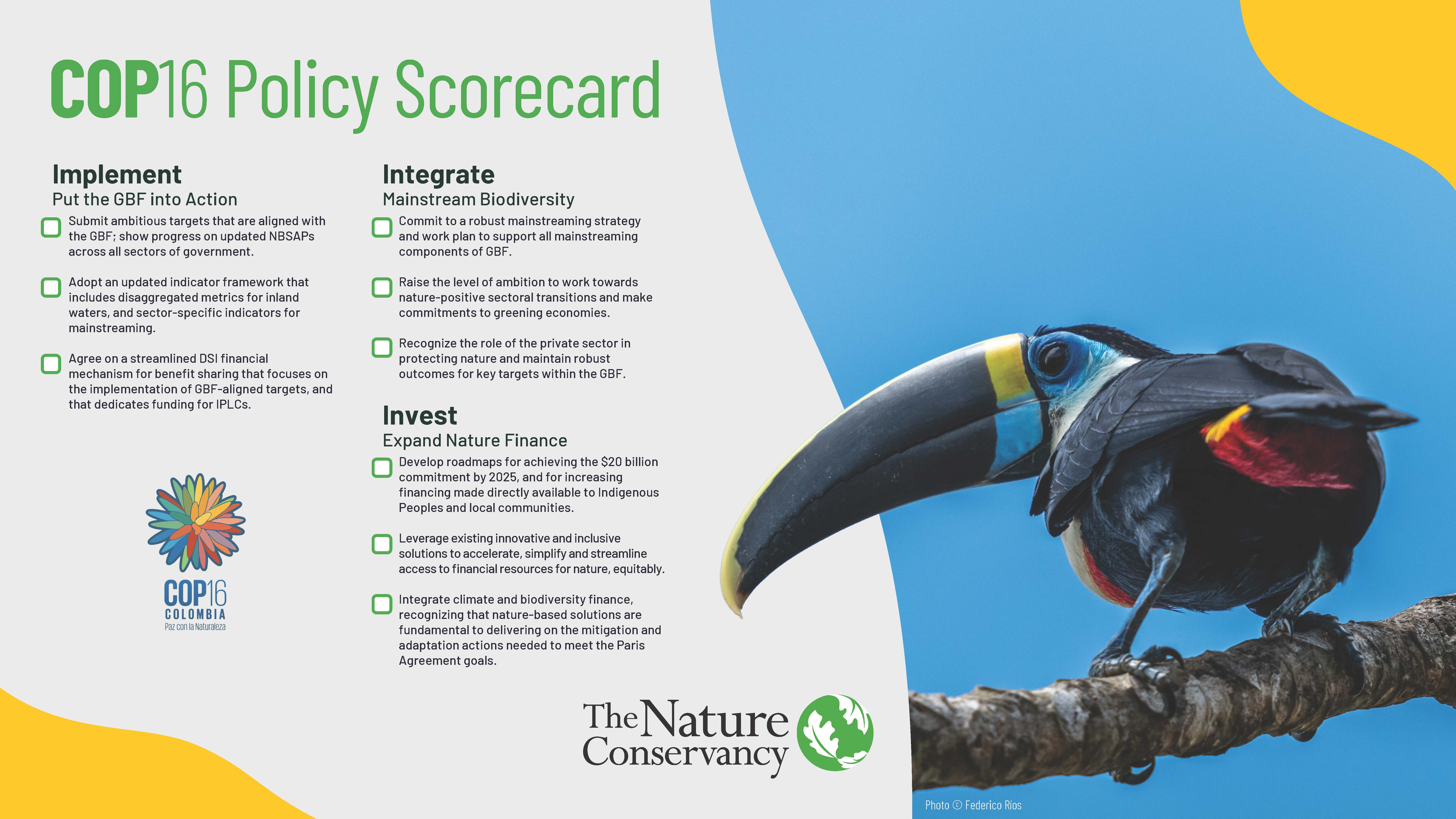
TNC's COP16 Policy Scorecard
Here are the outcomes that TNC is advocating at Biodiversity COP16 in Cali: Implement the GBF into action. Integrate mainstream biodiversity. And Invest, expand nature finance. Download the Scorecard
Let’s Make Breakthroughs Break Through
The climate and biodiversity crises are interconnected and daunting. But by working together, we can overcome the barriers to the solutions our planet needs. Get our monthly newsletter and join a community of changemakers.

